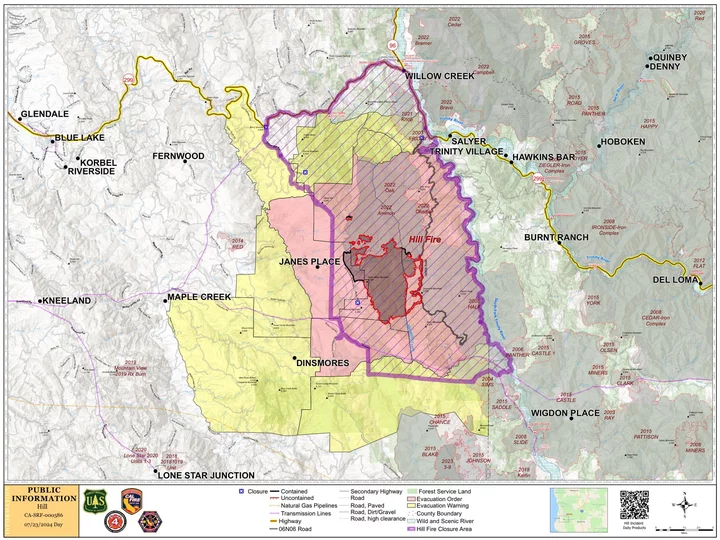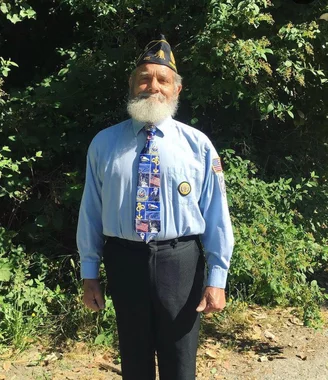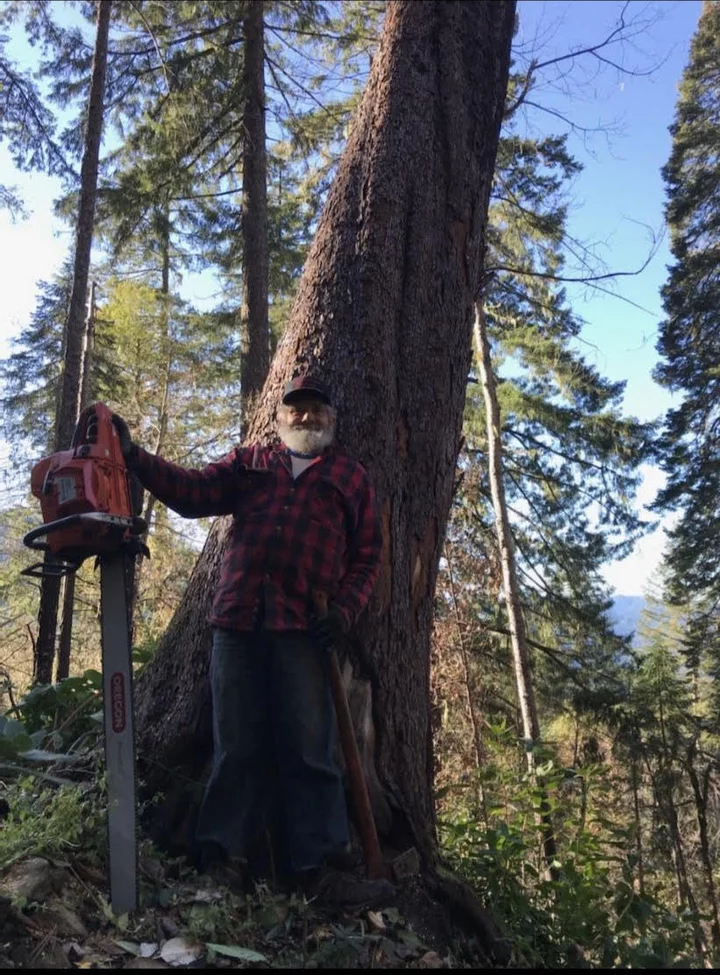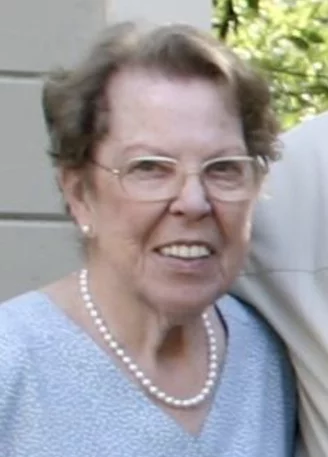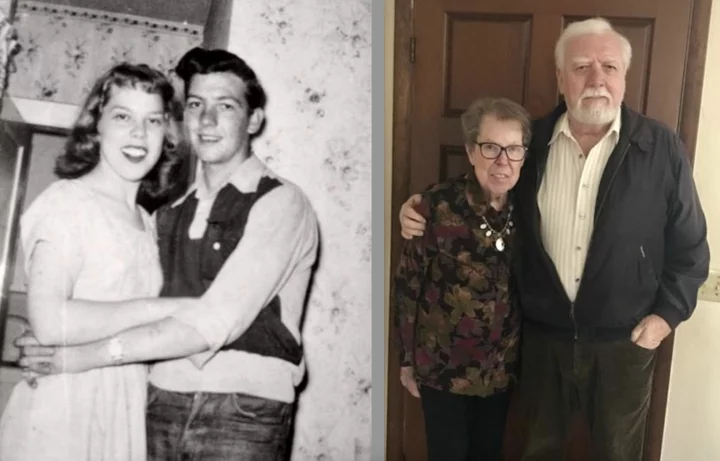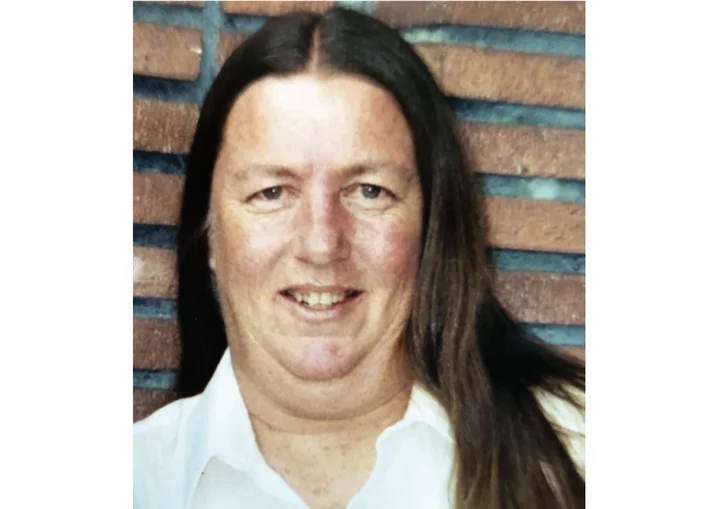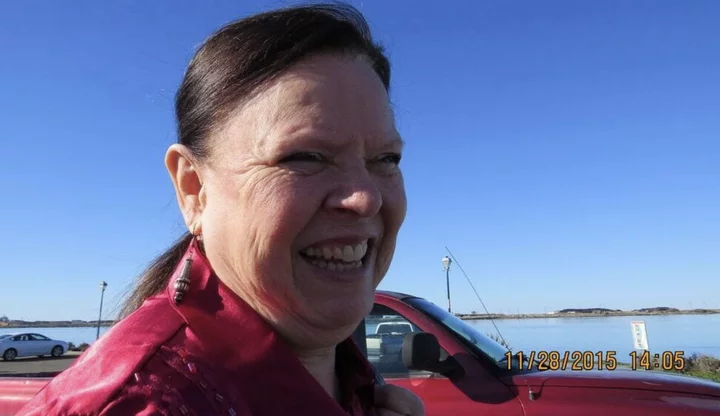Hill Fire Grows to 7,074 Acres, 8% Containment; Fire Activity Expected to Increase with Drier, Hotter Conditions
Isabella Vanderheiden / Tuesday, July 23, 2024 @ 10:36 a.m. / Fire
###
As of Tuesday morning, the Hill Fire burning 11 miles south of Willow Creek is listed at 7,074 acres with eight percent containment.
Favorable weather patterns earlier this week helped fire crews “gain good positioning” on the fire and expand containment lines, according to the Hill Fire Incident Command team. However, fire activity is expected to increase over the coming days with rising temperatures and lower relative humidity.
“Crews will be monitoring the west side and patrolling for any hot spots,” according to this morning’s update. “On the east side, crews will focus on suppressing any remaining hot spots as well as continued tactical firing operations. … Structure defense teams remain active to identify potential risks and implement mitigation strategies as part of the larger contingency plan.”
Residents in zones HUM-E076-A, HUM-E077-A, HUM-E077-B and HUM-E077-C are still under an evacuation order. Residents currently under an Evacuation warning should be ready to leave at a moment’s notice if conditions deteriorate. Find your evacuation zone at this link.
The Incident Command team will host a community meeting on Wednesday at 7 p.m. at the Willow Creek Bible Church. The meeting will be streamed live on the 2024 Hill Fire Facebook Page.
The following additional information comes from the Hill Fire Incident Command Team:
CURRENT SITUATION:
Favorable weather patterns during the early part of the week allowed firefighters to gain good positioning on the Hill Fire and increase containment to 8%. Tactical firing along Forest Road 6N06 on the eastern boundary of the fire has enabled crews to create as much as 200 feet of depth between the fireline and the primary fire expanding the fire footprint 7074 acres. This strategic approach continued with unmanned aircraft assisting in the evening, further extending the depth.
Crews have successfully connected these firing operations with a combination of dozer and hand lines connecting to Mosquito Creek and the western edge of the fire. Mop-up operations were continued to address remaining hotspots along the fire’s perimeter. Control lines in the north and west continued to be monitored, and hotspots eliminated overnight.
Map of Hill Fire Boundaries. Click to enlarge.
With rising temperatures and lower relative humidity expected during the next few days, these proactive operations have positioned crews ahead of the weather change. Structure defense teams remain active to identify potential risks and implement mitigation strategies as part of the larger contingency plan.
Today, with the drier weather and hotter temperatures, fire activity is expected to increase, allowing for the ignition of some areas within the fire perimeter that still have unburned fuel. Crews will be monitoring the west side and patrolling for any hot spots. On the east side, crews will focus on suppressing any remaining hot spots as well as continued tactical firing operations.
WEATHER:
High pressure will peak today with heat approaching 100 and relative humidity near 20 percent in clear valley. Smoke, especially on the east side will generally moderate conditions, but still expect to be hotter and drier than yesterday. Increased lift will help disperse smoke but weak and battling winds switching from south to north will not be favorable to efficient smoke transport. Compressing inversion will bring poorer overnight recoveries to mid-elevations. Despite high pressure at the surface, instability and moisture aloft will bring a slight chance of dry thunderstorms by early Wednesday morning.
EVACUATIONS:
Evacuation order and warnings remain in effect. For current updates on evacuations, visit https://www.facebook.com/HumboldtSheriff and https://humboldtgov.org/2383/Current-Emergencies.
Conditions are subject to change at any time, visit https://protect.genasys.com/search for a full zone description. Sign up for Humboldt Alert emergency notifications at https://humboldtgov.org/2014/Emergency-Notifications
CLOSURES:
Forest Closure Order currently in effect for the area impacted by the Hill Fire. It is temporarily prohibited to be on any national forest system land, trail, or road within the closure area. To view the closure order and map of closure area visit the following link www.fs.usda.gov/Internet/FSE_DOCUMENTS/fseprd1191963.pdf.
Road closures are currently in place on Friday Ridge Rd. at Forest Service Route 6N06, Friday Ridge Rd. at Forest Route 5N01 and Friday Fridge Rd. at Forest Route 5N04. For updated road closure information, visit protect.genasys.com or humboldtsheriff.org/emergency.
FIRE RESTRICTIONS:
Forest fire restrictions also went into effect on July 12th . Campfires and stove fires are restricted to those developed areas listed in the forest order located at https://www.fs.usda.gov/Internet/FSE_DOCUMENTS/fseprd1188610.pdf.
Smoking, welding, and operating an internal combustion engine also have restrictions in place
###
BOOKED
Yesterday: 6 felonies, 4 misdemeanors, 0 infractions
JUDGED
Humboldt County Superior Court Calendar: Today
CHP REPORTS
No current incidents
ELSEWHERE
RHBB: PG&E’s Match My Payment Bill-Pay Program Extended, Funds Are Limited
RHBB: Trinity County Reservoir Release and Flow Changes
Governor’s Office: Governor Newsom honors fallen Oxnard Police Department Commander
With Jacobs Property Deal Still Shrouded in Secrecy, League of Women Voters Urges Public to Attend the Next Eureka City Schools Board Meeting
LoCO Staff / Tuesday, July 23, 2024 @ 8:03 a.m. / Government
The Jacobs campus. | File photo.
###
From the League of Women Voters of Humboldt County:
On June 25th and 27th, The League of Women Voters of Humboldt County (LWVHC) read statements to the Eureka City Schools Board of Trustees regarding the property transaction between Eureka City Schools and AMG Communities - Jacobs, LLC pertaining to 674 Allard Avenue (Former Jacobs Middle School) and 3553 | Street, Eureka.
The LWVHC feels very strongly about the need for full and open transparency related to the actions of elected governmental boards and governmental decision-making.
At both Board meetings, we expressed our concern about the lack of transparency concerning the details of the transaction and the names of the members of the newly-formed LLC, as well as the minimal public notification or community input. We also urged that the Board delay the close of escrow on that transaction.
We applaud the Eureka City Schools Board of Trustees for delaying the close of escrow until August 9, 2024. However, the names of the members of AMG Communities - Jacobs, LLC still have NOT been disclosed.
Therefore, we urge concerned community members to attend the next Eureka City Schools Board of Trustees meeting on August 8, 2024 to voice their opinions and concerns. The agenda for the meeting is not yet available on the Eureka City Schools website, but we hope it will be available at least 24 hours prior to the Board meeting.
Community members can also contact Eureka City Schools to request a digital copy of the agenda prior to the meeting. The regular session Board meeting will take place at 2100 J Street in Eureka and will begin at 6:30pm.
The League of Women Voters is a nonpartisan political organization. We are nonpartisan in that we do not support or oppose any political party or candidate; we are political in that we take positions on selected governmental issues after member study and consensus.
Respectfully submitted,
Julie Kelly,
League of Women Voters of Humboldt County, President
and the Board of Directors, League of Women Voters of Humboldt County
###
PREVIOUSLY: League of Women Voters Chimes in on Lack of Transparency in Eureka City Schools Property Transfer
In case you’ve been wondering where the Jacobs campus is, here’s a map.
OBITUARY: Robert Cogen, 1935-2024
LoCO Staff / Tuesday, July 23, 2024 @ 6:45 a.m. / Obits
It is with great sadness that we announce the passing of Robert Sklar
Cogen, 89, on the morning of May 28, 2024. He died from the effects of the
devastating stroke he suffered many years ago. With great determination,
he fought until the end to regain what he had lost and continued to make
the most of what he had. Robert had a long life of adventuring, creating and
helping others, but the baling wire and duct tape could not hold him
together any longer.
He was many things in his long life: herpetologist, lawyer, artist, kinetic pilot, writer, gourmet, naturalist, overall scientist, poet, scuba diver, tour guide and educator. Robert lived life to the fullest.
For those of us who were family, he leaves a hole that cannot be filled. We honor his memory by living our lives with joy and a spirit of adventure.
Robert is survived by his wife Christine (Curtis), his daughter Amy Berkowitz and her husband Cliff, daughter Karen North, grandsons Alexander Berkowitz, Michael Berkowitz, Brian North, and granddaughter Mallory North. Also sisters-in-law Kimberly Swan, Deborah Schwartz Lipke (Randy), Lindarose Bruce (James), Terri Douglas (Ross), niece Jessica Swan-Purchio (Cameron) and many other nieces and nephews.
Robert was predeceased by his parents Harry and Dena Cogen, his sister Suzanne Cogen and close friends David Walker and Peter Presnell. Our deepest gratitude to Frye’s Care Home, Redwood Coast PACE, and Hospice of Humboldt for their exceptional and thoughtful care; and to his faithful friend, John Porter, who brought so much happiness to Robert at their Monday evening get togethers.
###
The obituary above was submitted on behalf of Robert’s loved ones. The Lost Coast Outpost runs obituaries of Humboldt County residents at no charge. See guidelines here.
OBITUARY: Walter Cosce, 1946-2024
LoCO Staff / Tuesday, July 23, 2024 @ 6:45 a.m. / Obits
Walter Louis Cosce, Sr., was born on July 19, 1946, in San Francisco, CA, to Italo and Marietta Cosce. He began his journey home on July 13, 2024, six days shy of his 78th birthday.
Walt was a veteran of the US Navy, having served aboard several aircraft carriers during the Vietnam War. He was proud of having served his country and was an active member of American Legion Post 415 in Hoopa.
Walt came to Weitchpec in the late 1960s. Like so many others, he was drawn by the prospect of finding gold. He always said he found his gold in the land and the people here. He often told the story of turning to his buddy and saying, “Wouldn’t you just love to tell people you live in Weitchpec?” He loved it so much that he did it for the rest of his life.
Walt held several occupations in his time, but logging got into his bones. He was in his happy place anytime he had a chainsaw in his hands. When logging jobs became scarce, he turned to cutting firewood, keeping his friends and neighbors warm as well as donating countless cords to fundraisers for local youth. He could recall a wealth of local history, family lore, and off-color jokes. Walt was an avid fisherman, an excellent cook, a master gardener, a great pool player, a pretty fair shade tree mechanic, and the perfect Santa Claus. However, his absolute favorite thing to do was to help people. He was the guy who had the tools, know-how, and willingness to help anyone, anywhere, anytime. Even when he couldn’t fix the problem, you’d walk away smiling because the man would say anything for a laugh. ANYTHING.
Walt is preceded in death by his parents, Italo and Marietta Cosce; his son, Jason Price Sr.; and his grandsons Jason Price Jr. and William Price. He is survived by his sisters, Barbara Mylin (Rich) and Emmy Cosce; brothers Leo Cosce (Joanne) and Albert Cosce (Beverly); his wife, Sunny Cosce; sons Walter (Louie) Cosce Jr., Vito Cosce (Ashley), and Chad “Mugzy” Sanders (Kira); his daughters Lena Cosce (Larry) and Taura Cosce (Tanner); daughter-in-law Sarah Scott (Alex); grandsons Roman Price, Miles Barner, Orion Cosce (Liana), Louis Cosce (Bri), Shawn MacMurray Jr., Italo and Leo Cosce, and Joey Schaeffer; granddaughters Devin, Jaycee, Crystal, and Kaylee Price, Aeriana Cosce, Yvonne Cosce, Julie-sa Harrison-Cosce, Marina Cosce, Felicia and Autumn Arambula (Seth), Uonascha Parker (Damani), Lorita Schaeffer, and Luella Cosce; great-grandchildren Steven Watson, Jase Price-Lewis, Domanik and Vienna Cosce, and Tia Cosce; as well as numerous nieces and nephews. He also leaves behind the Crayton family, Chris Hoyas, Kim Conrad, Windy Thornton and family, and too many other special friends to mention, all of whom he considered family.
A celebration of life for Walt will be held on August 3 at 12:00 p.m. at the Libby Nix Community Center in Weitchpec. Please bring a potluck dish and your favorite Walt Cosce stories to share.
Happy trails, Doc…until we meet again, “Peace, love, and all that hippie shit.”
###
The obituary above was submitted on behalf of Walt’s loved ones. The Lost Coast Outpost runs obituaries of Humboldt County residents at no charge. See guidelines here.
OBITUARY: Mary Kempton, 1932-2024
LoCO Staff / Tuesday, July 23, 2024 @ 6:45 a.m. / Obits
Mary Bell (Sivils) Kempton, aged 91, passed away on May 9, 2024, in Eureka, CA, surrounded by her loving family. Born on June 10, 1932, in Sasakwa, Oklahoma, Mary was the cherished daughter of William and Willa Sivils. At the age of 2, she moved with her family to Arlington, Kansas, where she was raised and later graduated from Arlington High School in 1950.
Mary was known for her radiant smile and the warmth she brought into every room. A devoted wife, mother, grandmother, great-grandmother, and sister, Mary placed her family at the center of her life, loving them deeply and unconditionally. She was the matriarch and the steady rock that everyone relied on. Her culinary skills were a major part of family gatherings, with her handwritten recipes and the cherished cookbook from her high school graduation being prized family possessions. Though many have tried, no one could replicate her dishes quite like she could.
Mary was the only one among her seven siblings to venture far from the Midwest, yet maintained close bonds with them despite the distance. Her life with her husband, Fred Kempton, whom she was married to for 71 years, was filled with love and shared adventures, including numerous road trips with her siblings and memorable annual summer trips to Kansas.
Mary is survived by her loving husband, Fred Kempton; her children, William Kempton (Tina), Susan Johnson (Leonard), and Amy Kempton; grandchildren, Treggan Mullenix (Betty), Laura Sarvinski (Travis), Neil Johnson, Jason Schoenmehl, and Tiffany Chappelle, (Luke) ; great-grandchildren William and Shawn Chappelle, Olivia and Jett Sarvinski, and Luka Mullenix; her brother Kenneth Sivils; and many nieces and nephews.
Mary was preceded in death by her parents, William and Willa Sivils; her daughter, Laura Chappelle; her grandson, Matthew Chappelle; and her siblings, Wilena Lander, Donna Kaufman, Lois Guthrie, Cleo Oliphant, and Arnold Sivils.
Mary’s life was a beautiful testament to the power of love and family, and she will be profoundly missed by all who knew her.
###
The obituary above was submitted on behalf of Mary’s loved ones. The Lost Coast Outpost runs obituaries of Humboldt County residents at no charge. See guidelines here.
OBITUARY: Carol Colby, 1960-2024
LoCO Staff / Tuesday, July 23, 2024 @ 6:45 a.m. / Obits
Carol Beth Colby was born on August 4, 1960, in Oxnard, California, to Gerald Arley Colby and Sylvia Lorraine Colby. She passed away on April 25, 2024.
Carol spent her early childhood in Oxnard, California, and moved to Eureka, CA, in 1972 with her mother, father, and three sisters. It was in Eureka where Carol developed a love for golf, just like her father, Jerry Colby. She frequented Eureka Municipal Golf Course and occasionally played at Baywood Golf and Country Club. Carol enjoyed the camaraderie of many golfing friends, especially the ladies’ golf group, including her favorite golf partner, Donna Hunter.
Carol worked for many years in the automotive industry, including mechanics and wholesale warehouse services in Eureka, with her last job at Napa Automotive Parts in downtown Eureka. She attended Eureka High School and was also a member of the United States Air Force.
Carol was blessed with the birth of her son, Jerry Lee Colby (Kitsu), and raised her family in Eureka. She was especially proud of her son’s recently opened business, “Sparky Fox Arcade,” at the Bayshore Mall. She would tell anyone who would listen how proud she was of Kitsu’s accomplishment.
Carol is survived by her son Kitsu Colby and Damien King, and her sisters Lynn Niekrasz (husband Michael) and Ann Colby. She is also survived by her niece Rachel Rudd and nephews Jason Garza, Christopher Garza, Josh Mann, Keith Mann, and Jesse Alora. Carol was preceded in death by her parents, Jerry Colby and Sylvia Scott, and her elder sister Jeri Garza. Also beloved son-in-law Alex Hanover.
A “Celebration of Life” will be held on Carol’s birthday, August 4th, from 1-3 pm at Synapsis performance space, 1675 Union St., Eureka.
###
The obituary above was submitted on behalf of Carol’s loved ones. The Lost Coast Outpost runs obituaries of Humboldt County residents at no charge. See guidelines here.
OBITUARY: Karen Agee, 1954-2024
LoCO Staff / Tuesday, July 23, 2024 @ 6:45 a.m. / Obits
Karen Darlene Agee (Hubbard) was born on April 17, 1954, and reached heaven on March 27, 2024, just before her 70th birthday. She was born in Eureka to Dale and Lotus Hubbard. She moved around California with Pac-Bell, then AT&T, until she resided in Modesto, CA. She and her husband, Mel, lived there until he retired. Once he retired, he wanted to move out of state, but Karen insisted on living close to family. For the last years of her life, she lived next to her youngest son, Ryan Carns, and his wife, Joleta, in Brownsville, California.
Karen had lost both her parents in the last seven years. Her oldest son, Scott A. Carns, and his wife, Samanthia, helped take care of them as they declined and ascended to heaven. He spoke with his mom daily until her dementia started, making it harder and harder to get a hold of her with all the family and work responsibilities depending on him. It was hard for him to visit her as often as he wanted.
At the age of 16, Karen gave birth to her oldest son, Scott, while still in high school. She graduated from Eureka High School in 1972 with her son in her arms. Karen was a kind woman who cared deeply for family. She was also a savior for abandoned and abused animals and loved riding horses. If you could visualize her heart, it was bigger than she was. An amazing wife, mother, grandmother, sister, daughter, aunt, cousin, friend, and great-grandmother, she was always smiling and loved to have fun. She enjoyed life to the fullest and was a believer.
She is preceded in death by her parents, Dale and Lotus Hubbard of Eureka, and her nephew, Neil Bryan Hubbard Jr.
Karen is survived by her husband, Melvin Agee, of Brownsville, CA; son Scott A. Carns and his wife, Samanthia, of Eureka; son Ryan Carns and his wife, Joleta, of Brownsville; grandchildren Brittani Carns and her husband, Jason Tunzi, Kevin Carns and his wife, Ashlee, Daniol Carns and his girlfriend, Nicole Basham, Riley Carns, and Jenna Carns; great-grandchildren Owen and Ayden Croan, Alivia, Ava, Eli, Lannan, Troy, Brinley Carns, Brantley and Jaxson Chambers, and baby Ace Tunzi due soon; stepson Sean and his wife, Nikki, and their children Parker and McKenzie; stepdaughter Annette and her husband, Clinton, and their children Oliver, Colleen, and Benjamin; brothers Neil Hubbard and his wife, Tina, Jack Hubbard and his wife, Leslie, and Skip Hubbard and his wife, Jan; and numerous cousins, nieces, and nephews.
We would love for anyone who knew her to join us in a celebration of her life at the Wharfinger Building on August 16th at 1:00 pm. Please bring finger food. We hope to find peace and allow all who cared about her to remember her for the loving and amazing woman she was.
In lieu of flowers, please donate to the Walk to End Alzheimer’s & Dementia.
RSVP to Samanthia Carns at samcarns72@gmail.com.
###
The obituary above was submitted on behalf of Karen’s loved ones. The Lost Coast Outpost runs obituaries of Humboldt County residents at no charge. See guidelines here.

